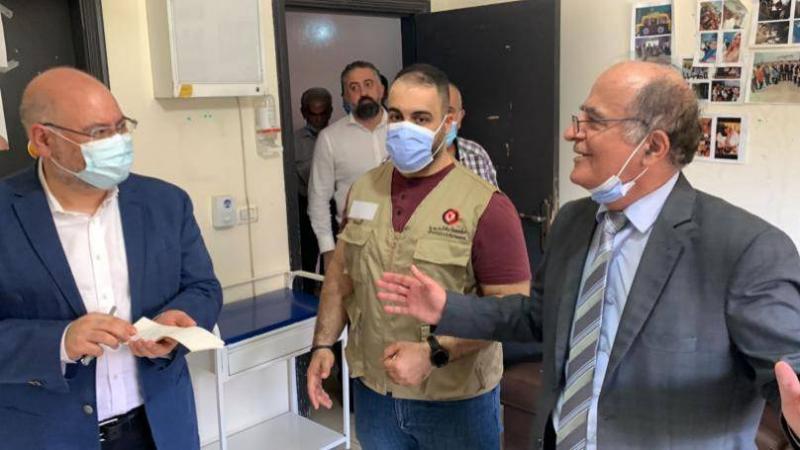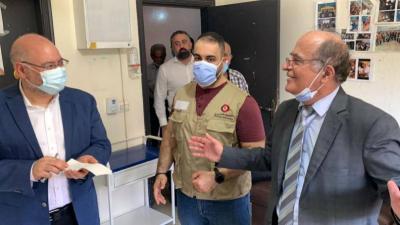The Minister of Public Health in the caretaker government, Dr. Firas Al-Abed, toured several primary healthcare centers and hospitals in the Western Beqaa and Rashaya districts, inspecting the health, medical, and hospital situation there, and becoming acquainted with the struggles and problems faced by this sector in the region.
The visit began at the Malta Organization center in Kafriya, followed by a stop at the public hospital in Khirbet Qanafar, where he met with the administrative and medical staff. He then proceeded to Qaraoun, where he was welcomed by the president of the Lakes Union of Municipalities and the Qaimmaqam of Western Beqaa and Rashaya at the Qaraoun Charity Health Center. The Qaimmaqam of Western Beqaa, Wissam Nasbi, confirmed, "The health center will be supported with the available and possible resources." Discussions also took place regarding ways to support this center, which provides services primarily to the poor.
At the Jab Jennin Charity Health Center, there was a large reception and honoring for the Health Minister. At the primary healthcare center in Kamd El-Luz, affiliated with the International Humanitarian Organization, the minister learned from the center's director, Dr. Hussein Madi, about the services provided to thousands of beneficiaries, including Lebanese and Syrian refugees, in health, social, psychological, educational, and cultural aspects. Madi emphasized to Minister Al-Abed, "The need to continue cooperation between the organization and the ministry despite all the difficult and harsh circumstances the country is going through."
For his part, the Minister of Health stated, "We know the difficult health situations in Lebanon, especially in areas that have suffered chronic deprivation, such as Western Beqaa and others. It is very important for us as a state to stand by them, especially in tough times, and we stress the issue of accessing healthcare through primary healthcare centers or public hospitals, where costs to the patient are much lower. Through this tour, we were able to better understand the needs and difficulties faced by these centers and hospitals, and we are working as a ministry to assist them in overcoming these difficulties and providing the necessary resources for them to continue their very important role."
Al-Abed added, "There is no doubt that the significant turnout at healthcare centers during this time, particularly from Lebanese citizens, is driven by the high costs of treatment in Lebanon, pushing them to seek more affordable solutions. We extend a big salute to the primary healthcare centers that meet the needs of citizens with limited resources, accommodating a large number of people and providing them with good services across all levels—not just health and physical well-being, but also social and psychological health, among others. As a ministry, we are solidarity partners and supporters, we hear the concerns and issues that these centers complain about, and we look for solutions that can be provided through the ministry or through donor organizations."
The minister then continued his tour in the districts of Rashaya, Hasbaya, and Marjayoun.




